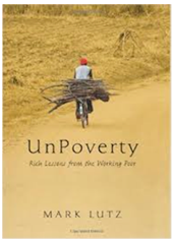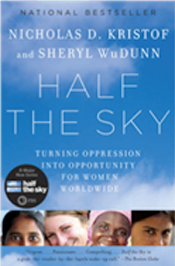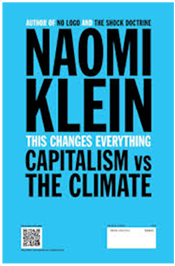Planet Aid's Recommended Reading List
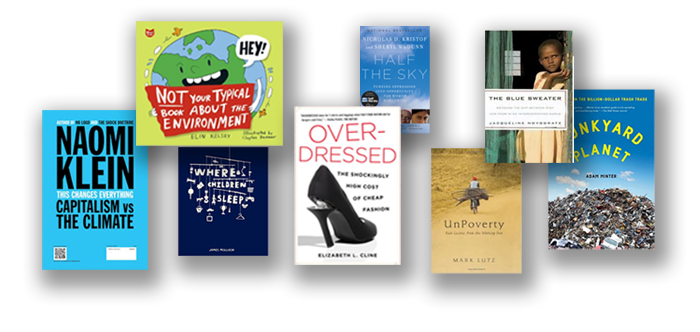
Looking for some page-turners to fill out your summer reading list? Check out these eight nonfiction titles recommended by Planet Aid. These books contain refreshing perspectives and compelling storytelling that mirrors our mission of environmental sustainability and poverty eradication. (You can click on any of the book cover images for a link to purchase the book.)
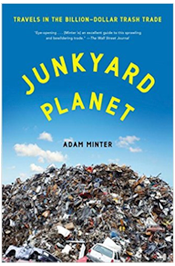 Junkyard Planet: Travels in the Billion-Dollar Trash Trade
Junkyard Planet: Travels in the Billion-Dollar Trash Trade
Did you know that the global recycling industry employs the largest amount of people in the world apart from the agriculture sector? Junkyard Planet by Adam Minter describes how the stuff that Americans throw away becomes fuel for entrepreneurship in the developing world. In the same way that unwanted textiles dropped off in a yellow bin can help people in other countries make a living, a lot of our other discarded items are more valuable than we realize.
Listen to an interview with author Adam Minter on NPR below.
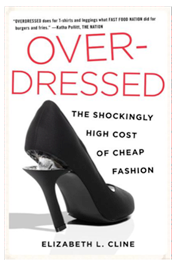 Overdressed: The Shockingly High Cost of Cheap Fashion
Overdressed: The Shockingly High Cost of Cheap Fashion
Author Elizabeth Cline looks behind the scenes of fast fashion, revealing who pays the high costs for throwaway clothing (hint: it's very rarely the consumer). Overdressed takes the reader on the full tour of a garment's lifecycle, from the factories of Bangladesh where many of our clothes are manufactured to the textile recycling facilities that process the clothes Americans don't want anymore. It becomes clear that the business model feeding our constantly changing sartorial desires is not sustainable for the environment or the people making our clothes.
(For more information about fast fashion, you can also read our blog post, "Shifting the Cost: Why Our Clothes Are So Cheap.")
UnPoverty: Rich Lessons from the Working Poor
The standard narrative used to describe the lives of people living in lower- and middle-income countries is more often than not tainted with glum tones. Mark Lutz paints a different picture in the book UnPoverty, focusing instead on the richness of people's lives despite material poverty. The book is evidence that wealth is attributed to latitude more than laziness, and happiness can be found in any locale.
Half the Sky: Turning Oppression into Opportunity for Women Worldwide
The book has become a phenomenon of sorts, spawning a television documentary series, a film, and even a video game. Written by journalists Nicholas D. Kristof and Sheryl WuDunn, Half the Skyhighlights the untold stories of oppression endured by women on a daily basis around the world.
"When a prominent dissident was arrested in China, we would write a front-page article," they write. "When 100,000 girls were routinely kidnapped and trafficked into brothels, we didn't even consider it news." The disturbing anecdotes and statistics in Half the Sky are sometimes difficult to swallow, but the overall message of empowerment and possibility has encouraged a swell of support for women's rights around the world.
This Changes Everything: Capitalism vs. The Climate
A highly acclaimed bestseller, This Changes Everything shifts the conversation on climate change toward the role that capitalism plays in the degradation of our planet. Author Naomi Klein not only identifies the problems and dispels the myths that encumber progress on climate change, but also offers solutions and highlights the successes from which we can learn.
Watch the book trailer below for a preview of This Changes Everything.
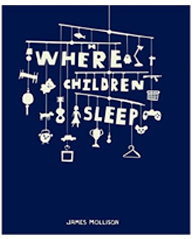
Where Children Sleep
If you're looking for a fascinating new coffee table book, Where Children Sleep delivers in its compelling look at the disparities of our world by focusing a lens on the ordinary lives of our children. Photographer James Mollison takes portraits of children from all walks of life and their corresponding bedrooms, highlighting the stark differences between them in a collection that is simultaneously captivating and unsettling. The toy-filled room of a wealthy Japanese girl, for example, contrasts sharply with the bare-bones structure of an impoverished boy from Senegal. Mollison's photographs capture the lives of children from countries such as the U.S., England, Italy, Brazil, Mexico, Israel, the West Bank, Kenya, Senegal, Lesotho, Nepal, China, and India.
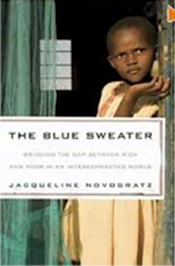 The Blue Sweater: Bridging the Gap Between Rich and Poor in an Interconnected World
The Blue Sweater: Bridging the Gap Between Rich and Poor in an Interconnected World
The book's title comes from author Jacqueline Novogratz's surprising reunion with a blue sweater, one which she had donated eleven years earlier to Goodwill, on the back of a young boy she encounters in Rwanda. This almost unbelievable coincidence is proof for her that we are all more connected that we realize, and serves as inspiration for her work in addressing poverty around the world. The Blue Sweater is both an autobiographical tale of Novogratz's shift from successful international banker to development expert and a challenge to the reader to rethink their notions on poverty.
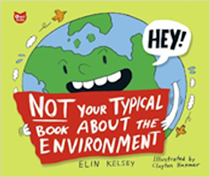
Not Your Typical Book About the Environment
Properly educating kids about the environment without doom and gloom rhetoric can be difficult, but Not Your Typical Book About the Environment achieves a rare balance of factuality and fun. All of the topics are introduced in way that is relatable to readers in grades four through eight, and the vibrant illustrations help simplify complex environmental issues. Grown-ups might learn something, too!
More of a movie buff than a bookworm? Take a look at Planet Aid's Favorite Socially Conscious Documentaries.

